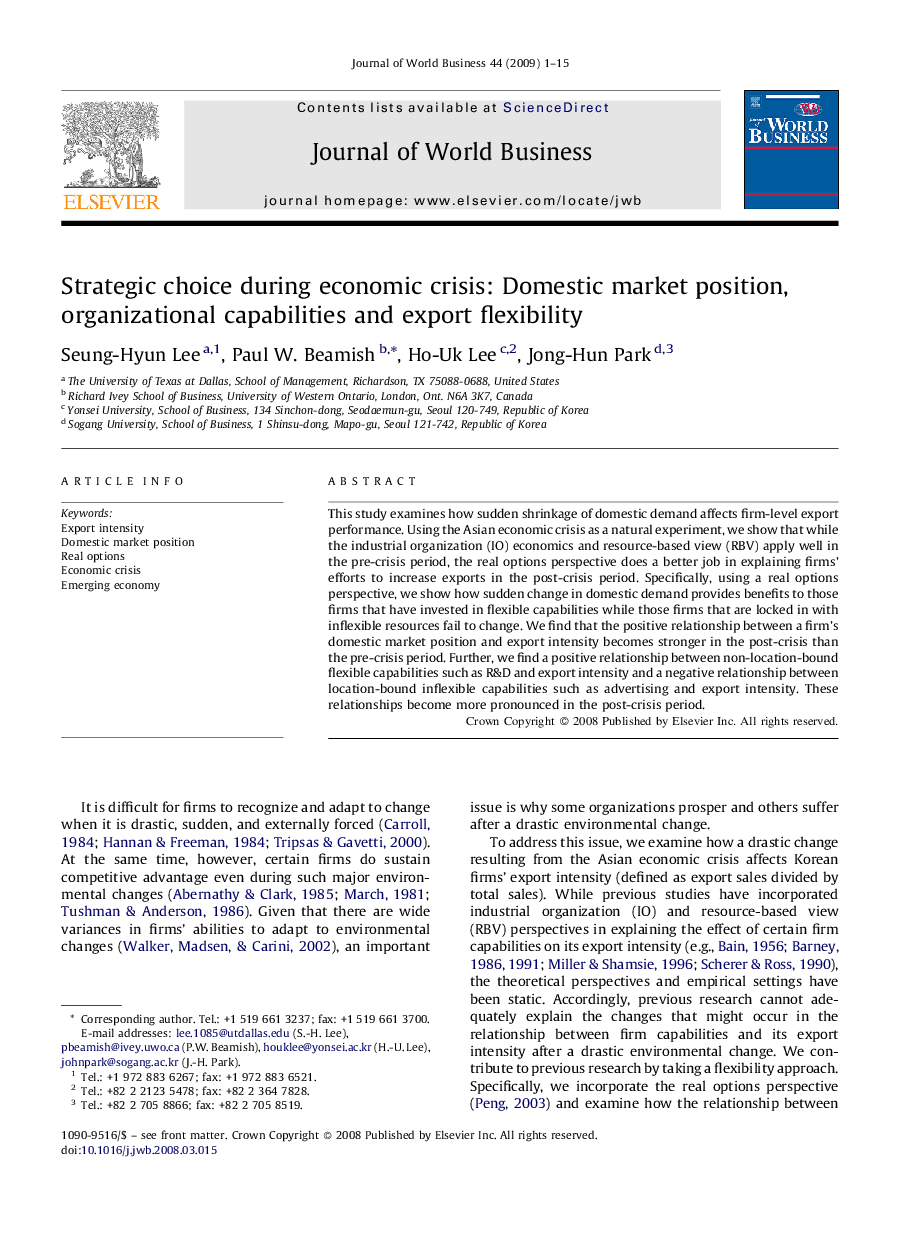| Article ID | Journal | Published Year | Pages | File Type |
|---|---|---|---|---|
| 1001667 | Journal of World Business | 2009 | 15 Pages |
This study examines how sudden shrinkage of domestic demand affects firm-level export performance. Using the Asian economic crisis as a natural experiment, we show that while the industrial organization (IO) economics and resource-based view (RBV) apply well in the pre-crisis period, the real options perspective does a better job in explaining firms’ efforts to increase exports in the post-crisis period. Specifically, using a real options perspective, we show how sudden change in domestic demand provides benefits to those firms that have invested in flexible capabilities while those firms that are locked in with inflexible resources fail to change. We find that the positive relationship between a firm's domestic market position and export intensity becomes stronger in the post-crisis than the pre-crisis period. Further, we find a positive relationship between non-location-bound flexible capabilities such as R&D and export intensity and a negative relationship between location-bound inflexible capabilities such as advertising and export intensity. These relationships become more pronounced in the post-crisis period.
